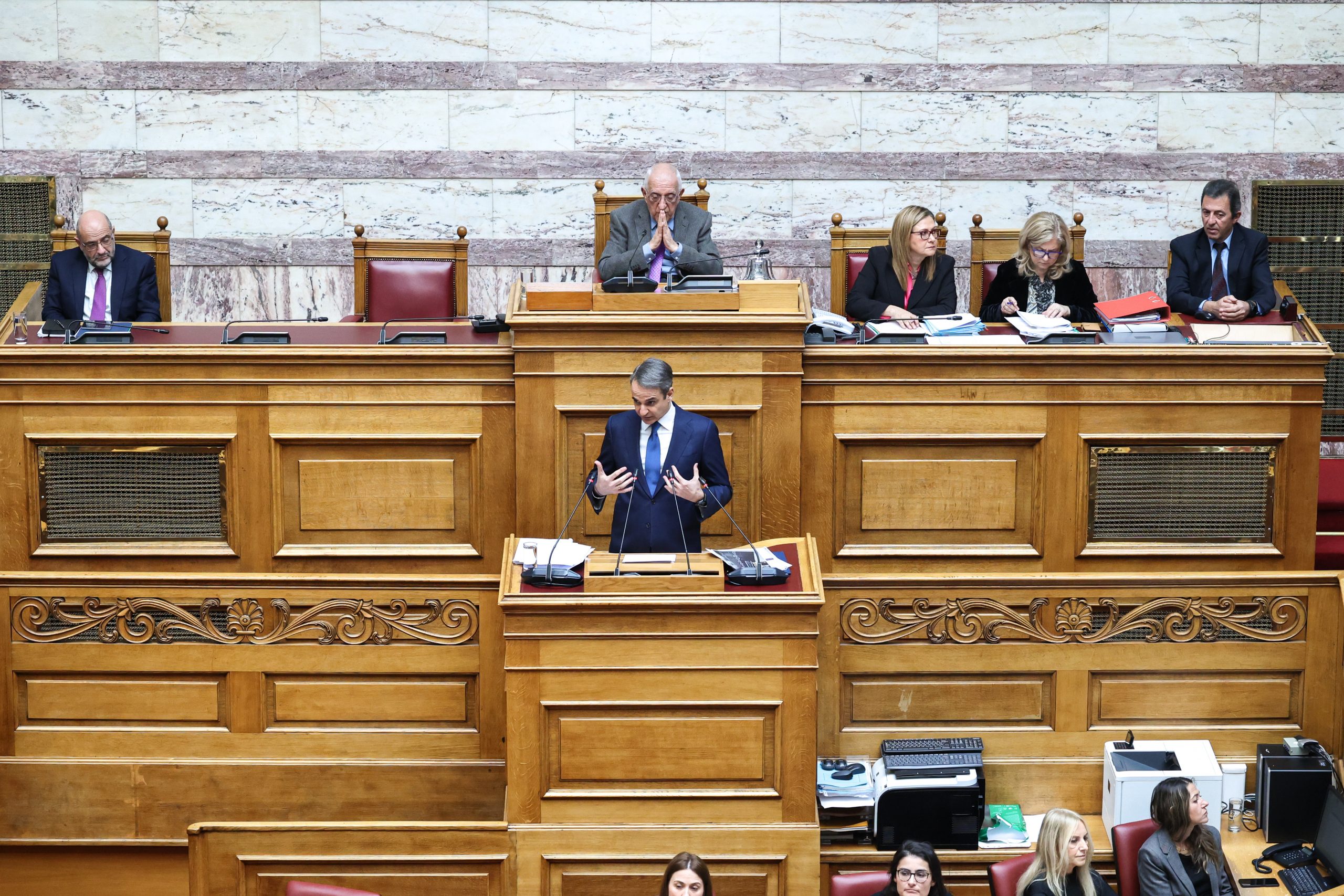An old rule of democracy has been confirmed yet again. Governments don’t fall in squares to demonstrations or popular protests, and they don’t fall to condemnations yelled out on the street or the TV.
Governments fall in parliaments and in elections.
Thank goodness. For otherwise, we would have no democracy. We’d have a permanent deviation from it, instead.
On Friday night, the Greek Parliament confirmed its confidence in the Mitsotakis administration for the second time in eleven months by voting down the second motion of no-confidence raised against it by the Opposition in relation to the same issue.
We can’t be sure the fuss and bother will end here.
The Opposition doesn’t seem to have any alternative strategies up its sleeve for destabilizing the government, so it will continue with the same repertoire and methods, despite the defeats it has suffered.
For its part, though the government ultimately emerged unscathed from the parliamentary process, it was almost blindsided by an issue it had considered long since over and done with.
Has the administration learned its lesson?
We’ll soon see whether this second affirmation of parliamentary confidence, coupled with the inauguration of the new President of the Republic and an expected government reshuffle, will set a reboot in motion for a government that already has almost six years in office under its belt.
We’ll see whether the toxicity it has long since left unaddressed with a good deal of arrogance will receive an actual political or judicial response and stop poisoning society.
We’ll see whether it can exploit the disintegration of an untrustworthy laughing stock of an Opposition to confirm its dominance.
Of course, it will have to do all this in a charged social climate that is testing the mutual trust between the government and the governed.
It isn’t going to be easy. And it will be up to the Prime Minister to make it happen.
Because, as the debate in the Hellenic Parliament made crystal clear, Kyriakos Mitsotakis retains a clear advantage over his opponents. It’s time to use that advantage to the benefit of his government.
It is more than obvious that after all these years in office, the extenuating circumstances have dwindled and excuses sound like pretexts.
All of which means the reshuffle will be crucial, in so far as it shines a light on the Prime Minister’s intentions and the strategy he aims to follow from now until the 2027 elections.
Most importantly of all, though, he has to convince us the new Cabinet won’t be caught napping like its predecessor was.
Which is self-evident. Though that doesn’t make it any easier to do.



